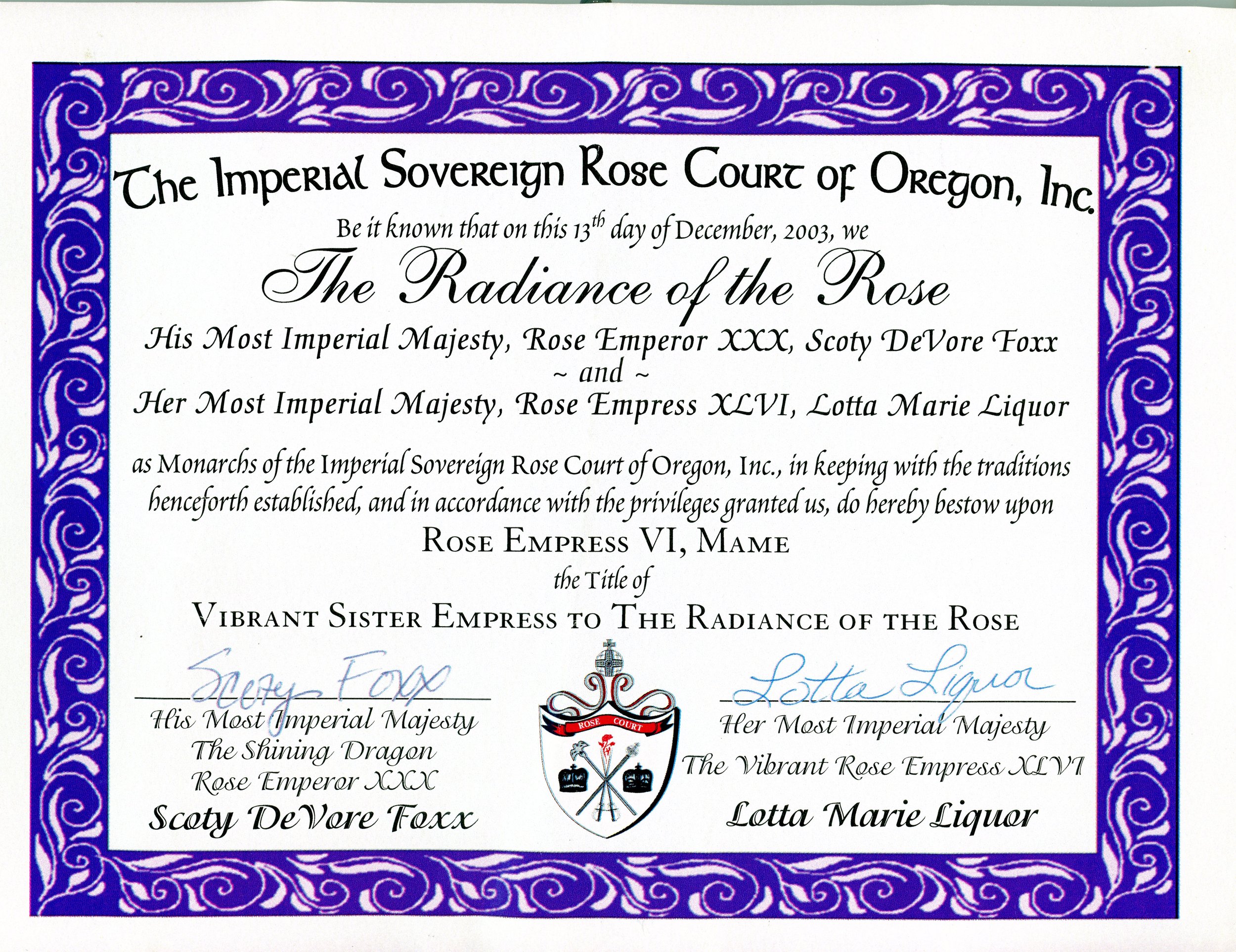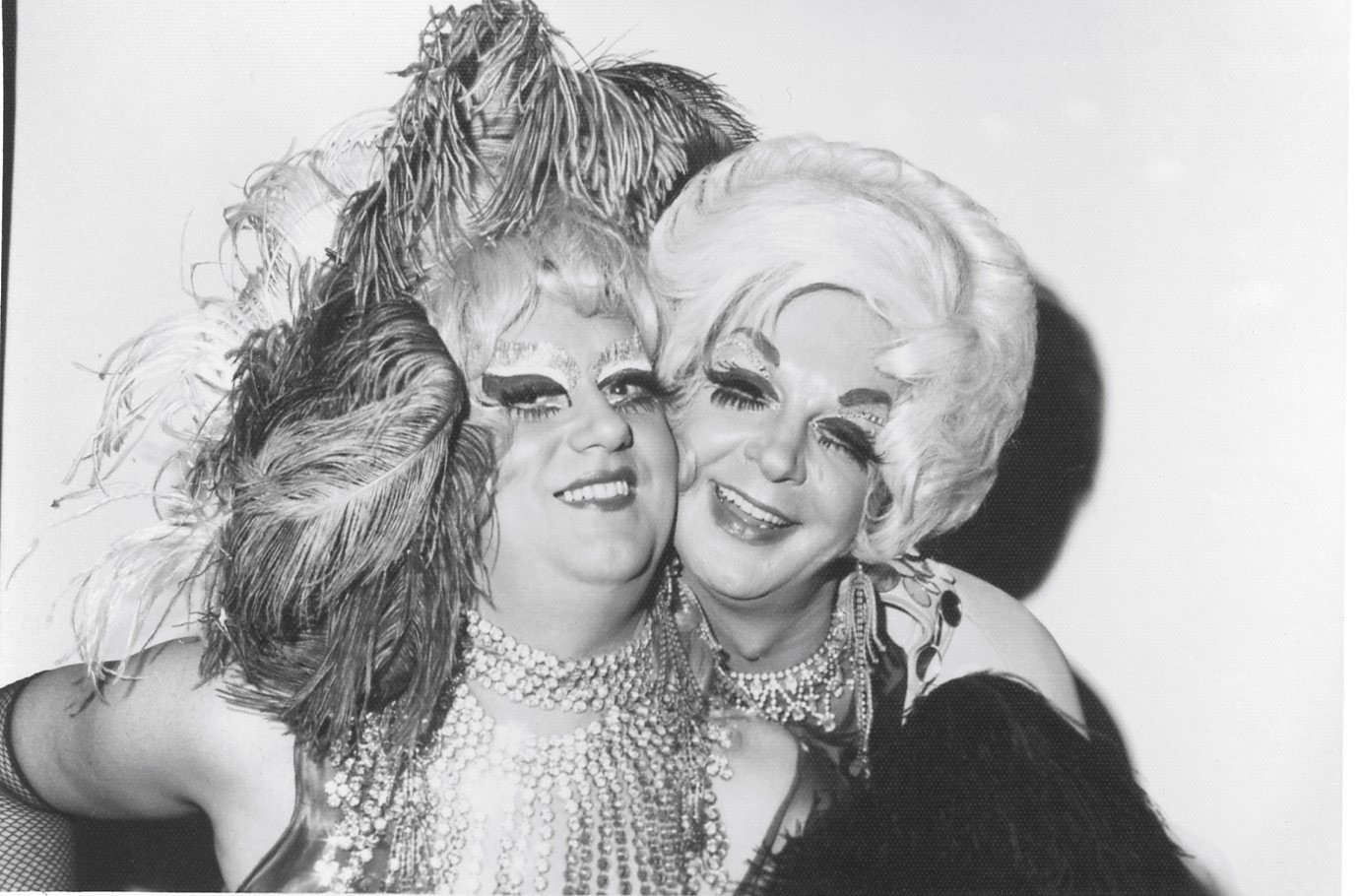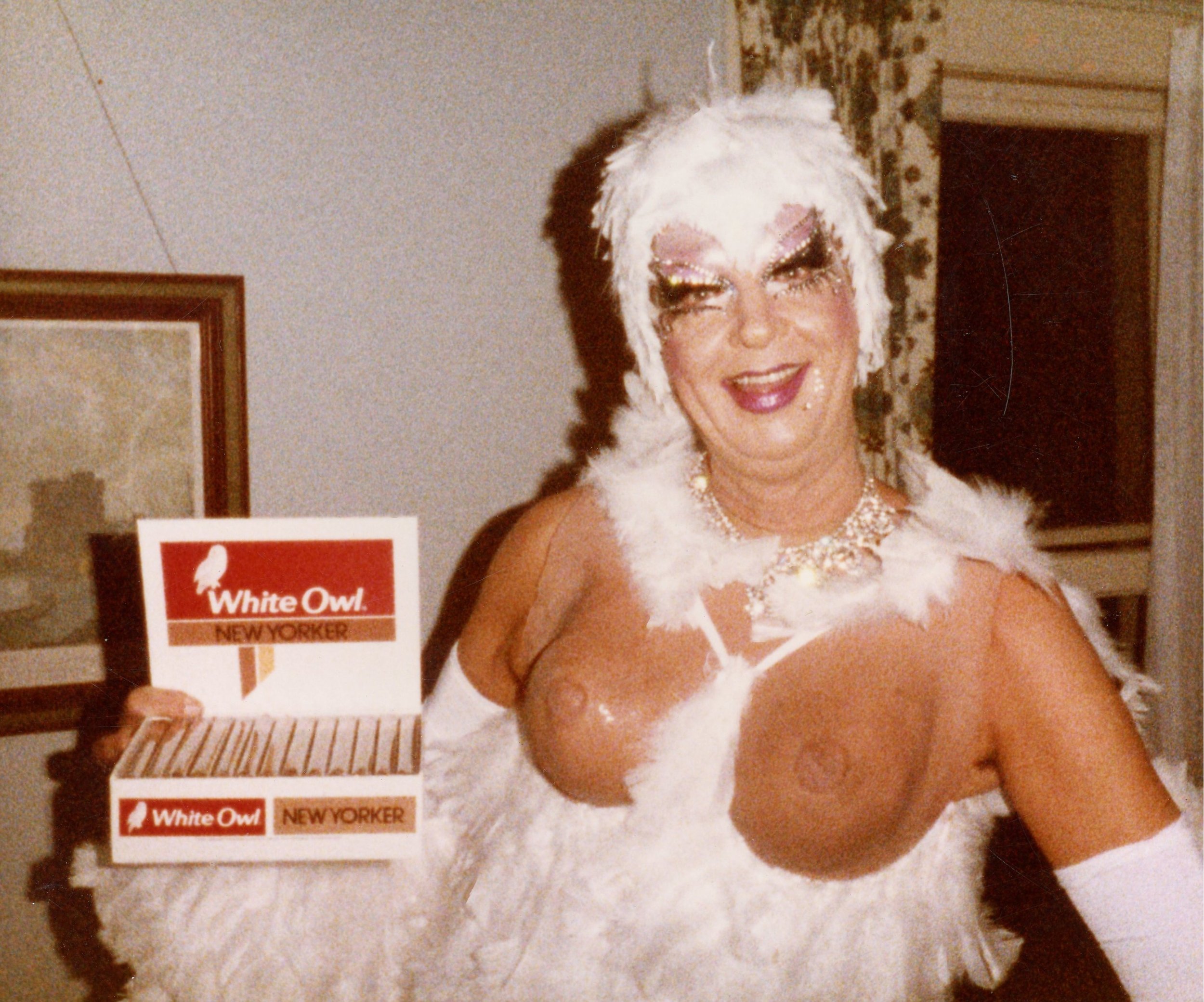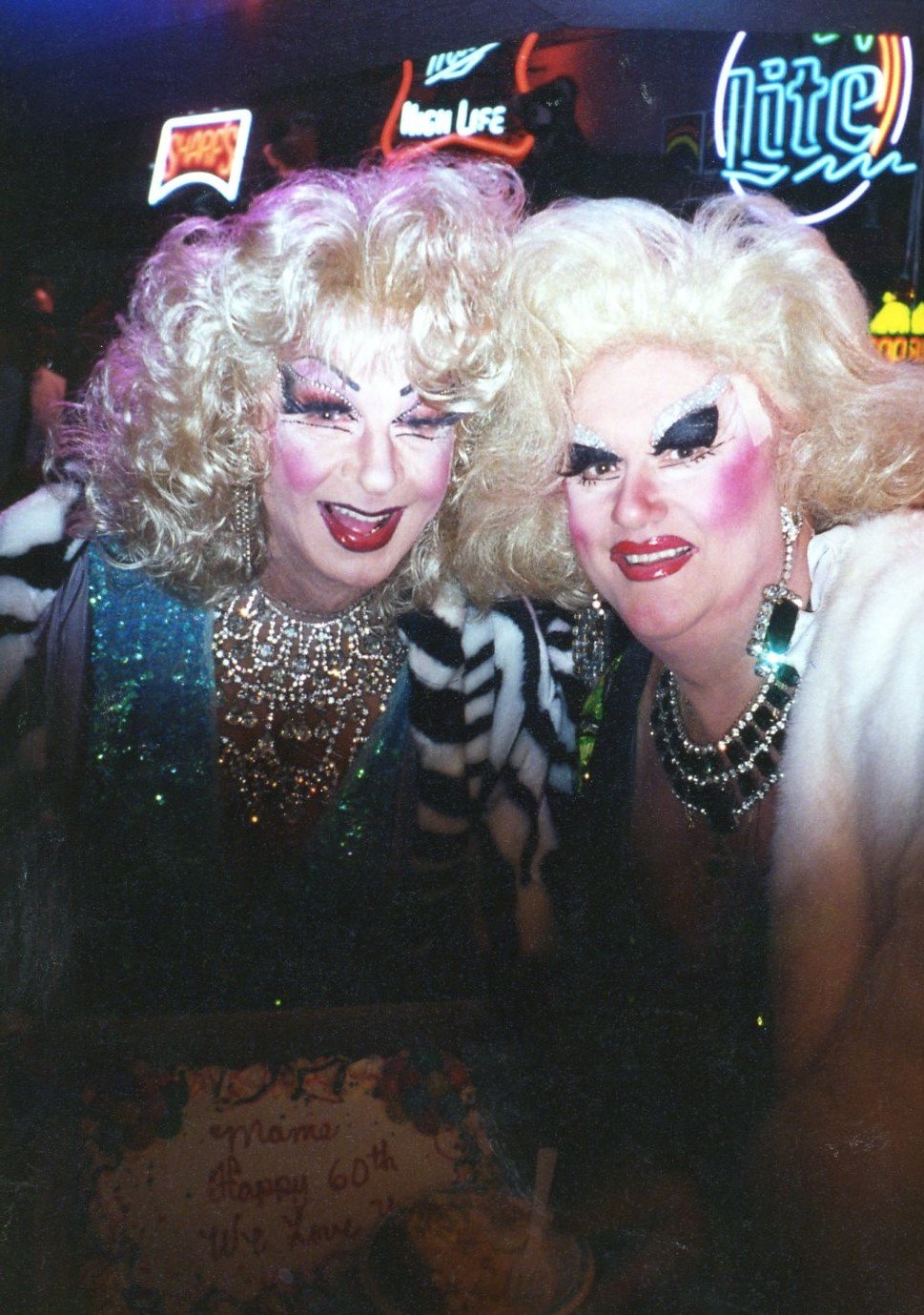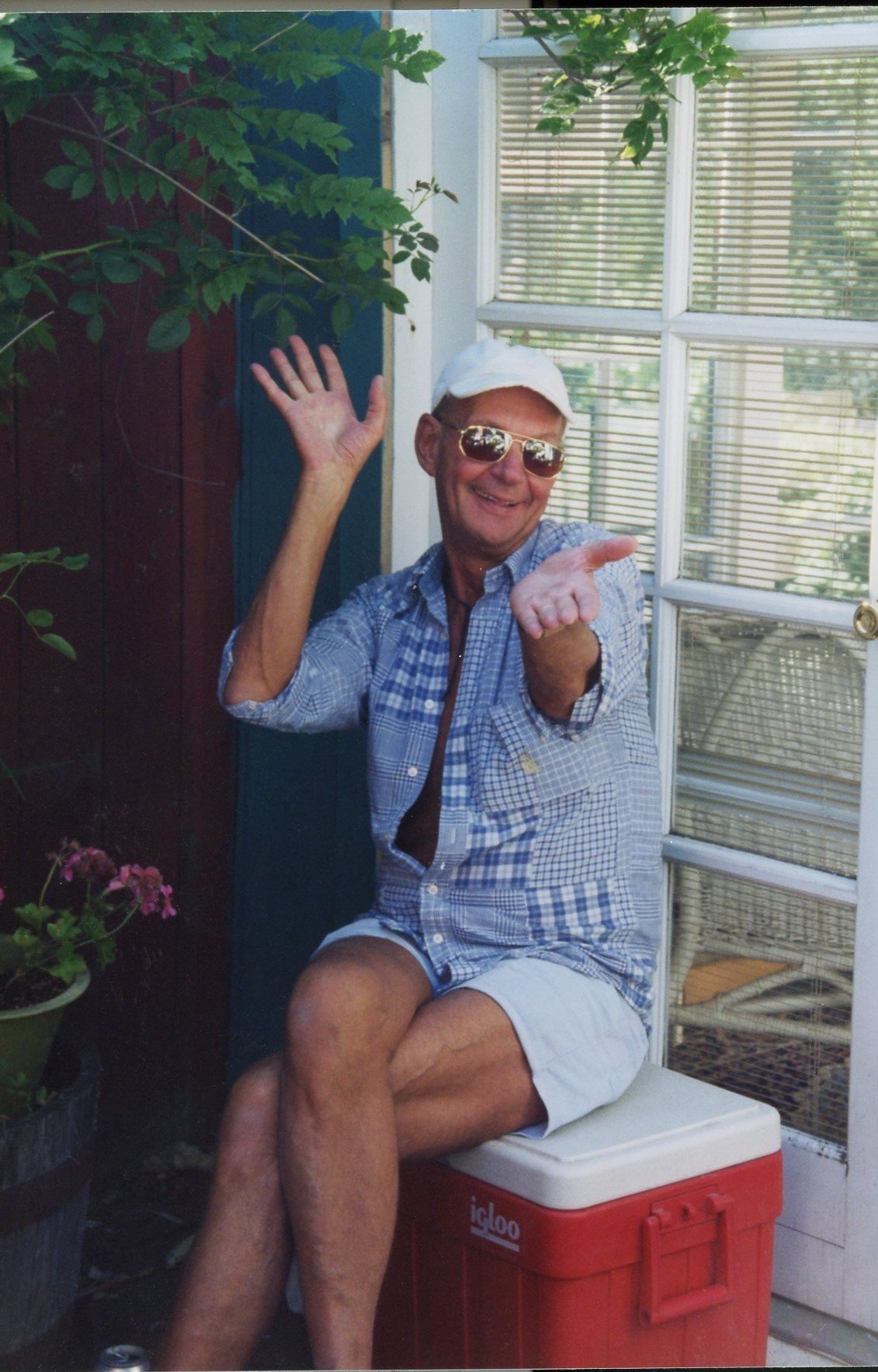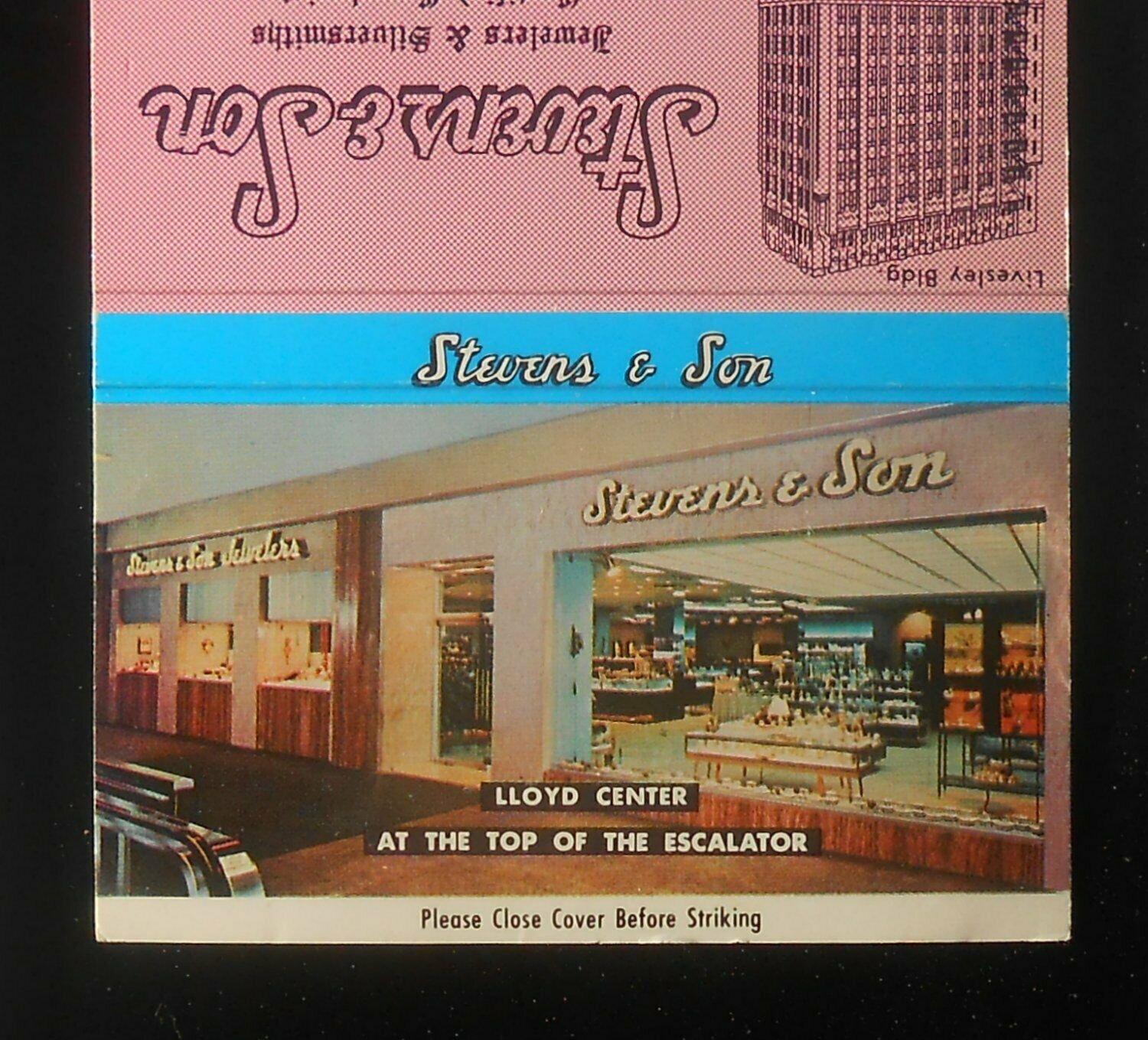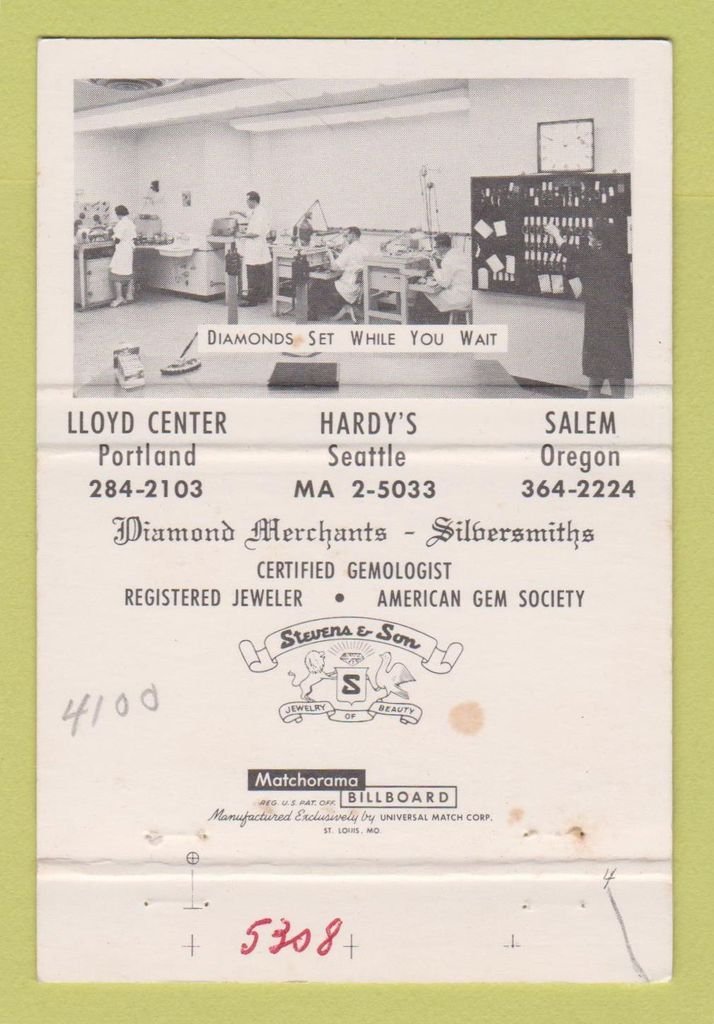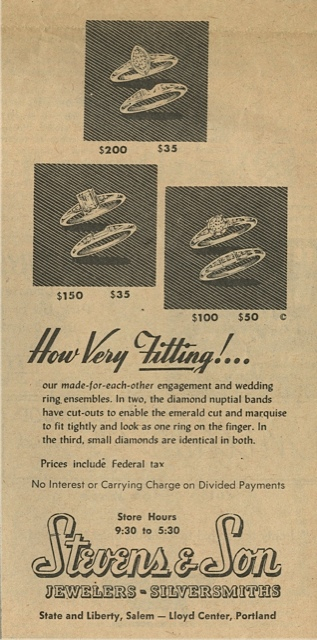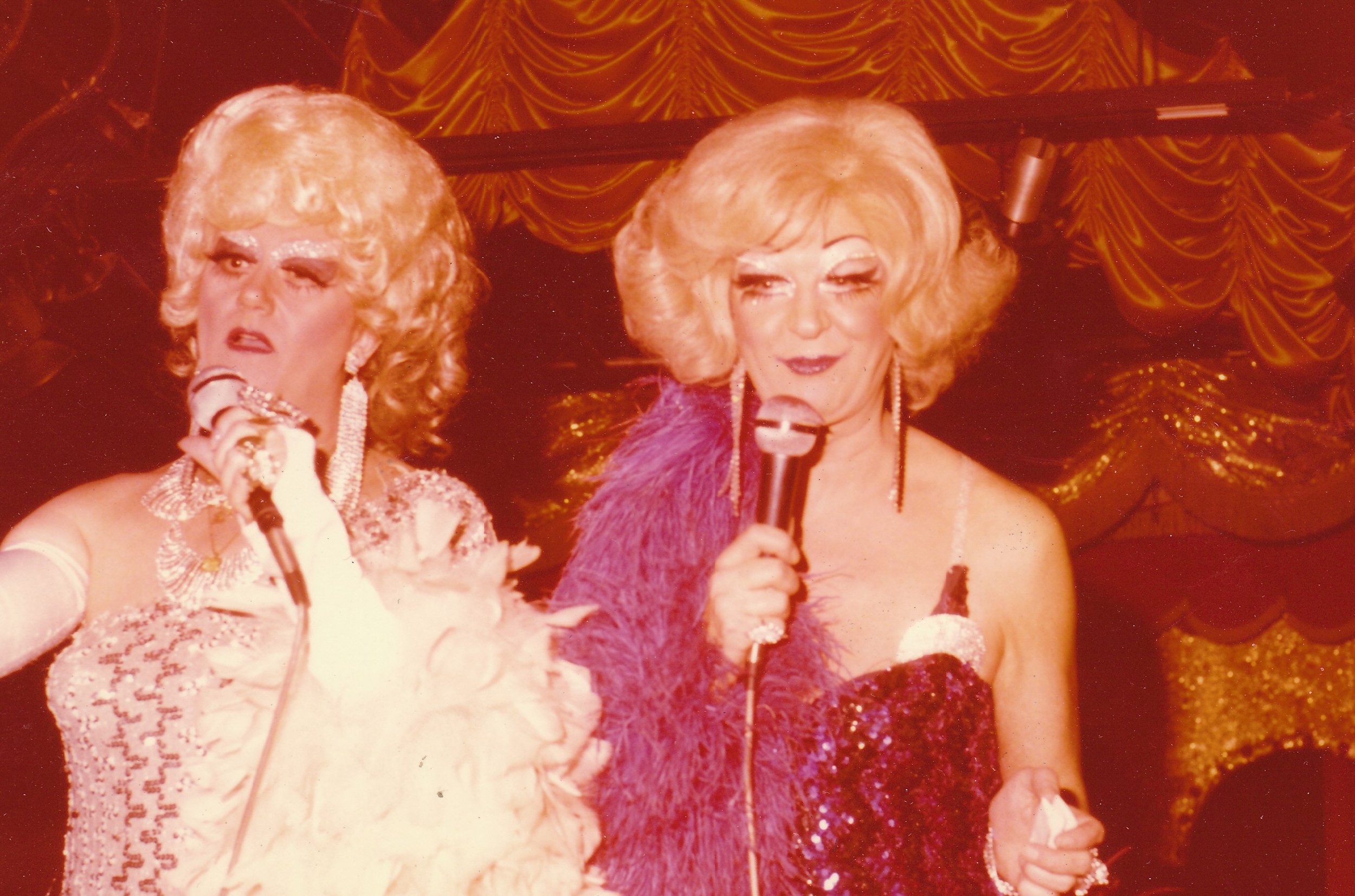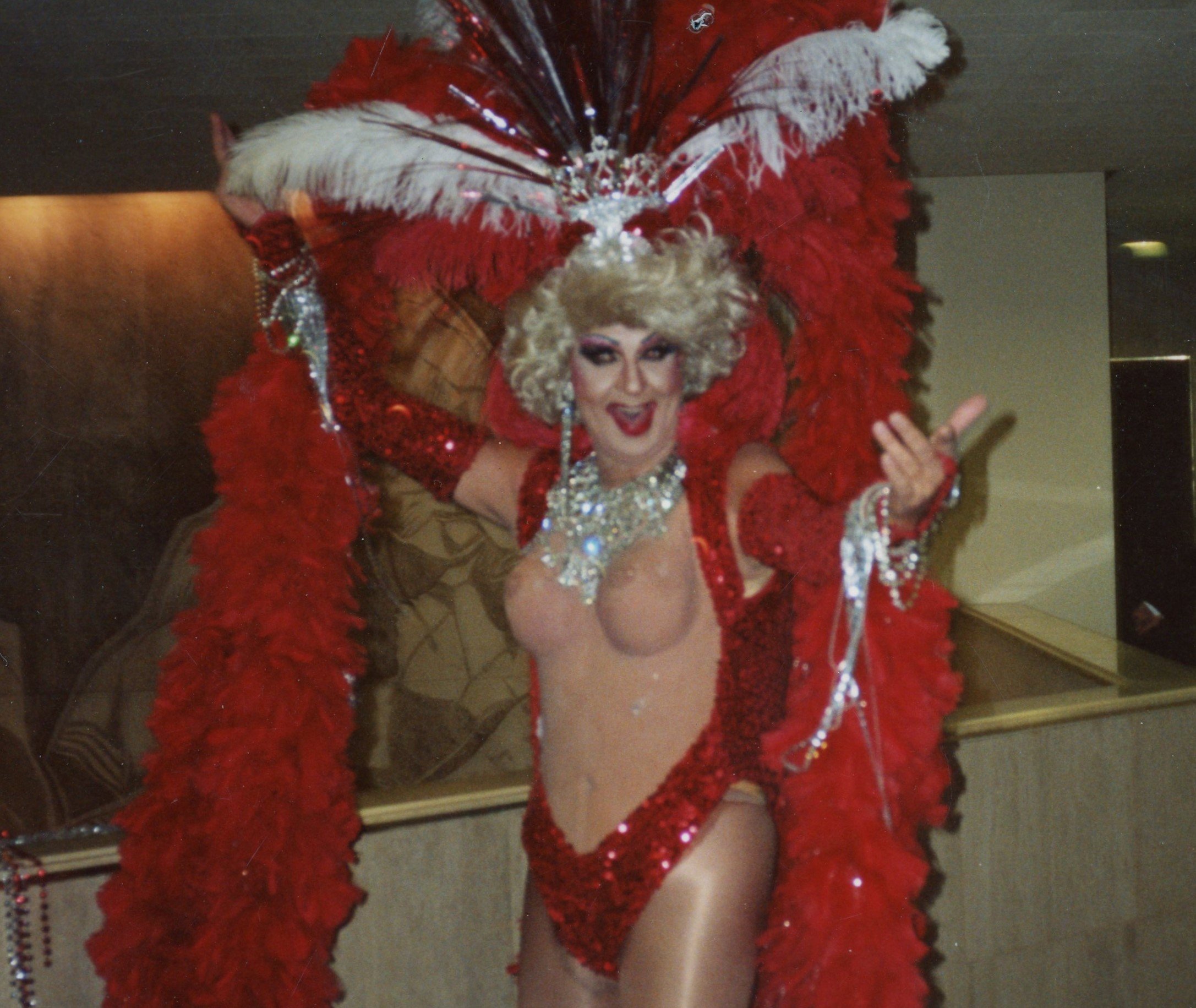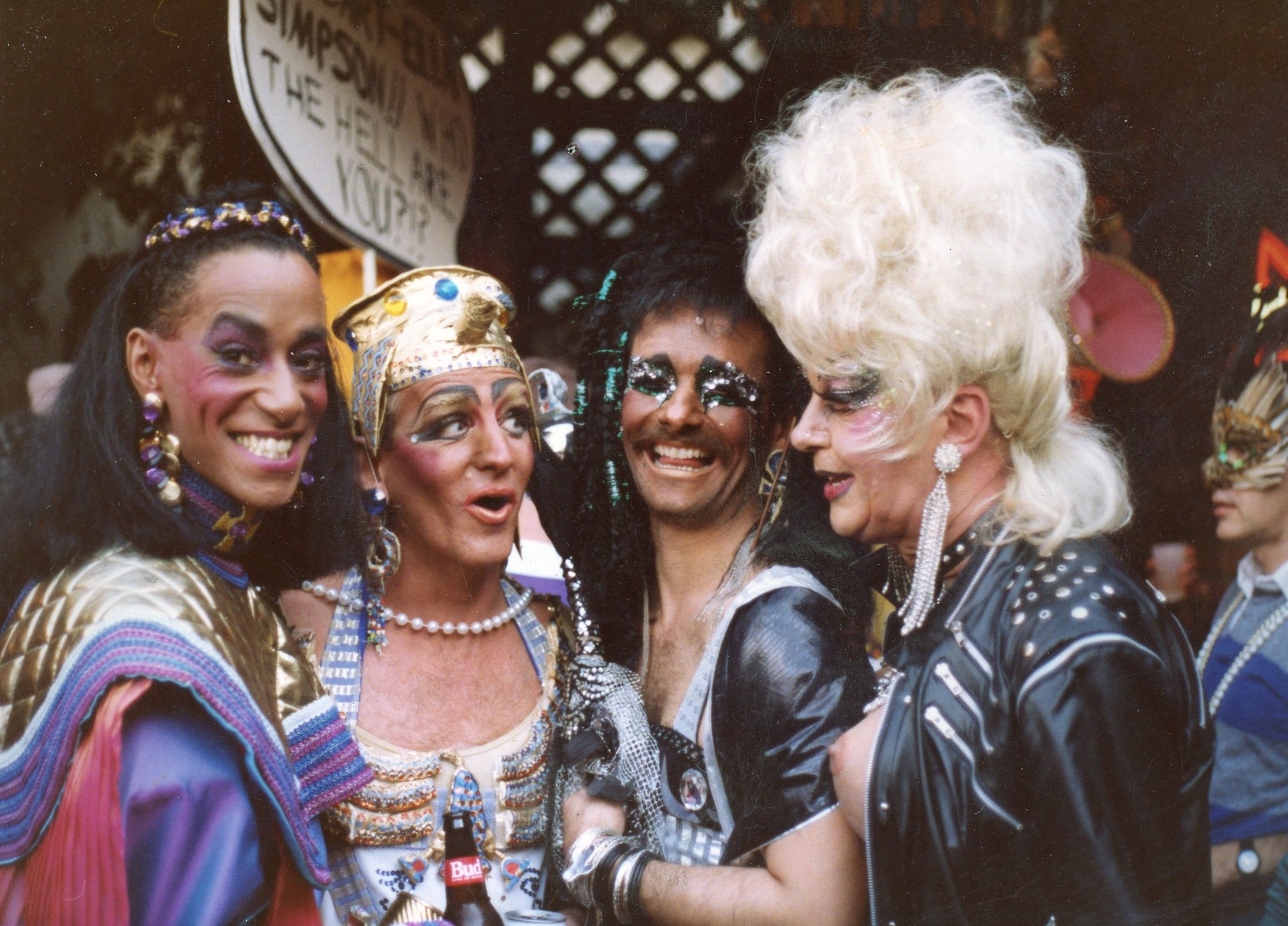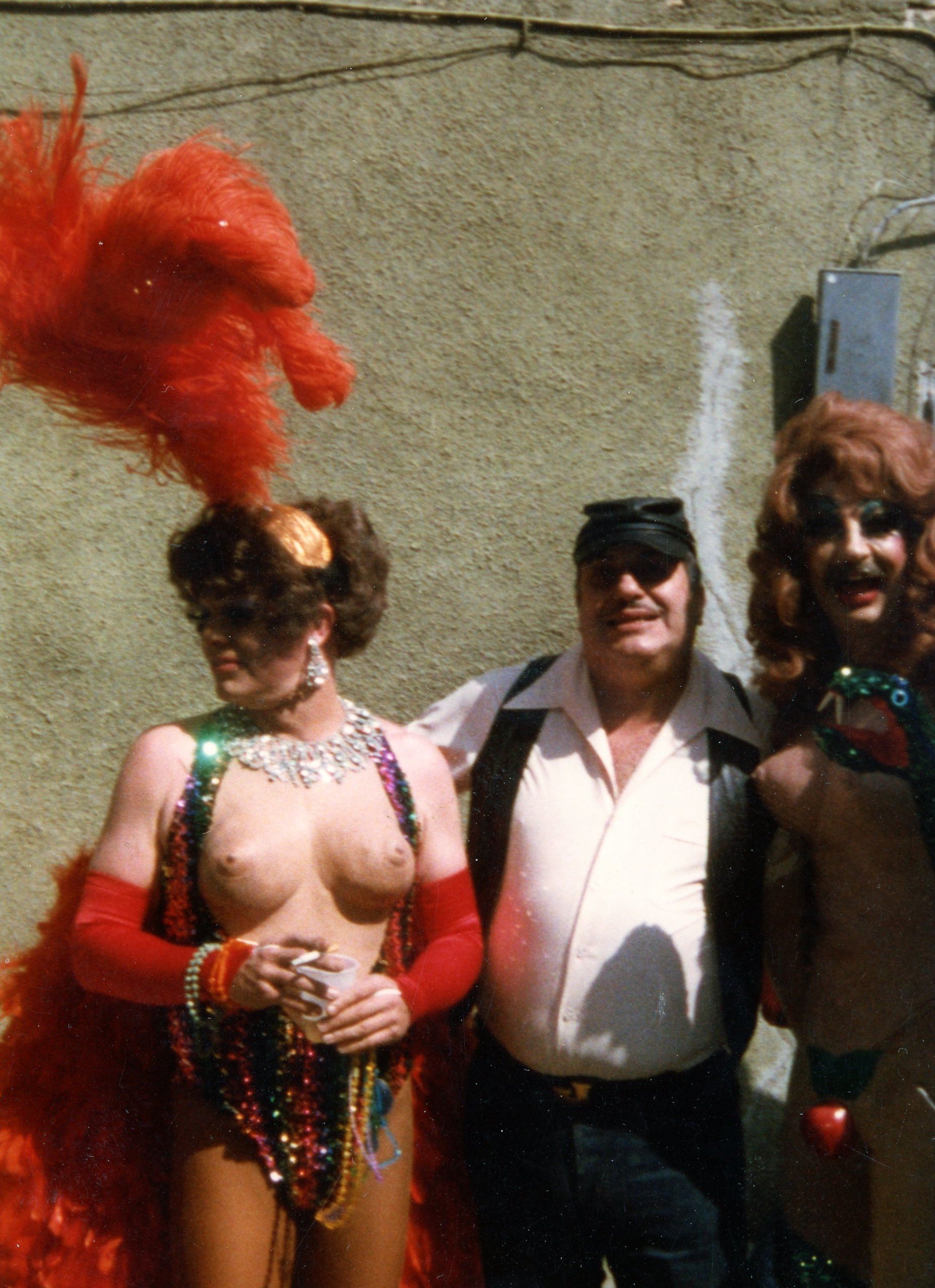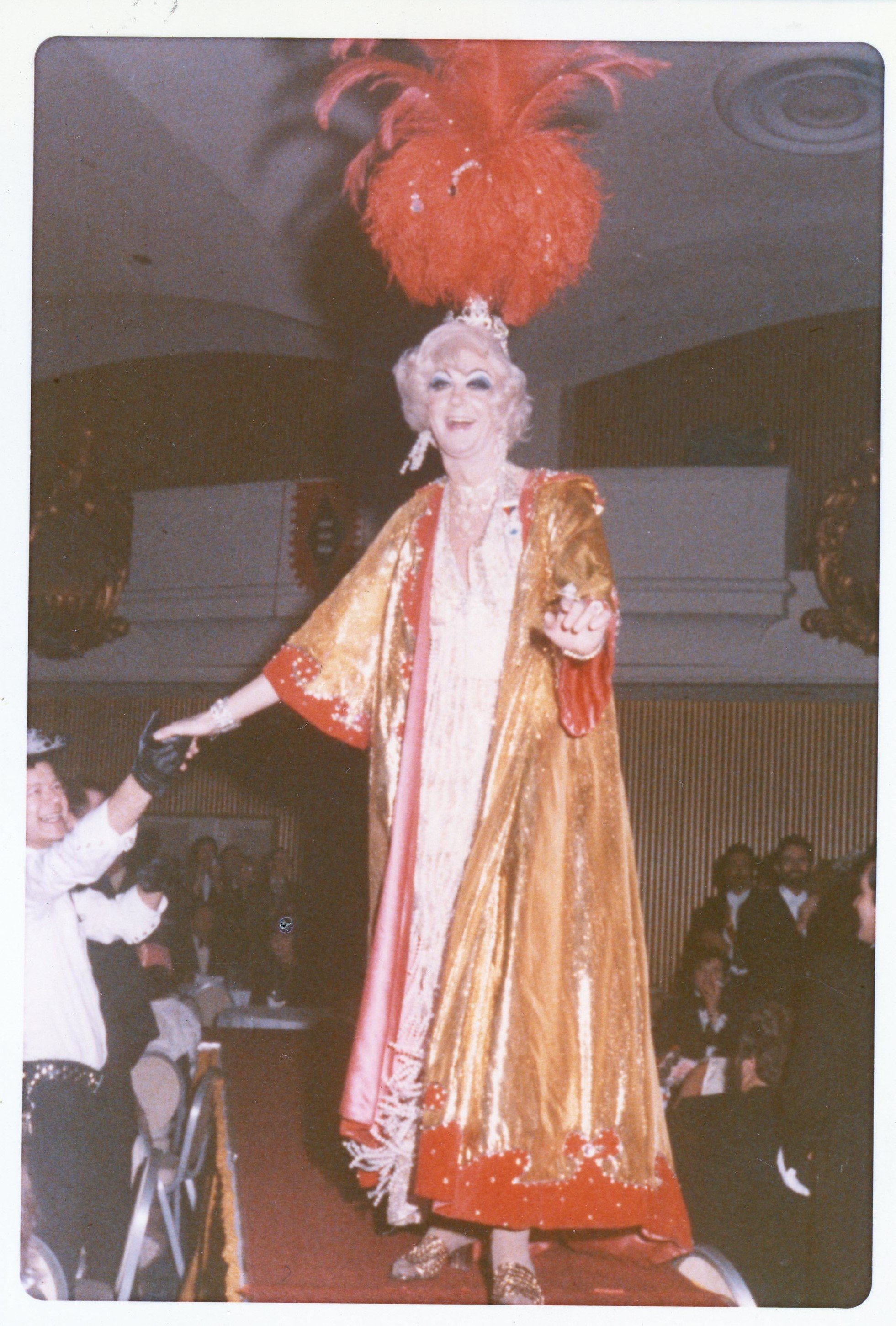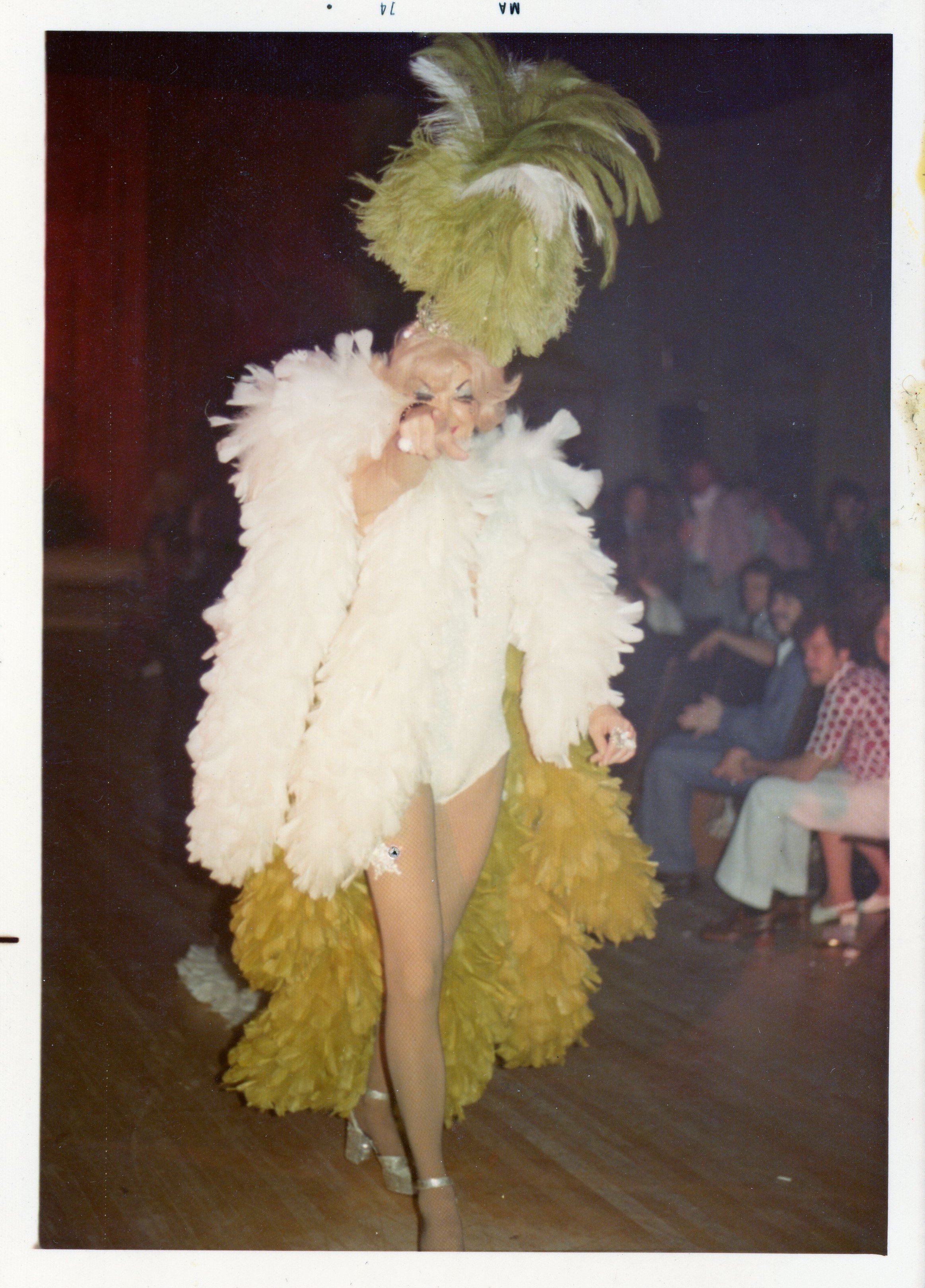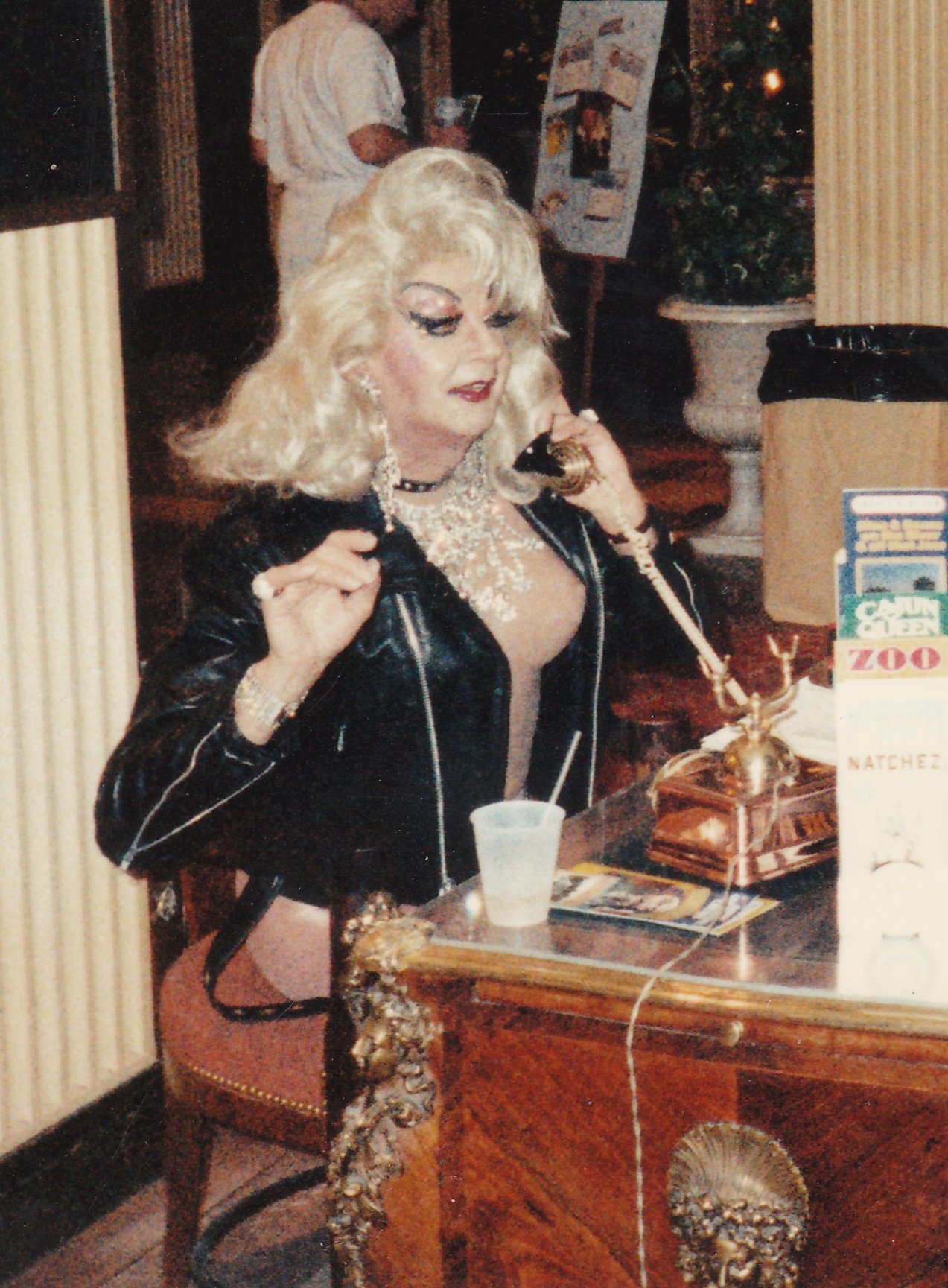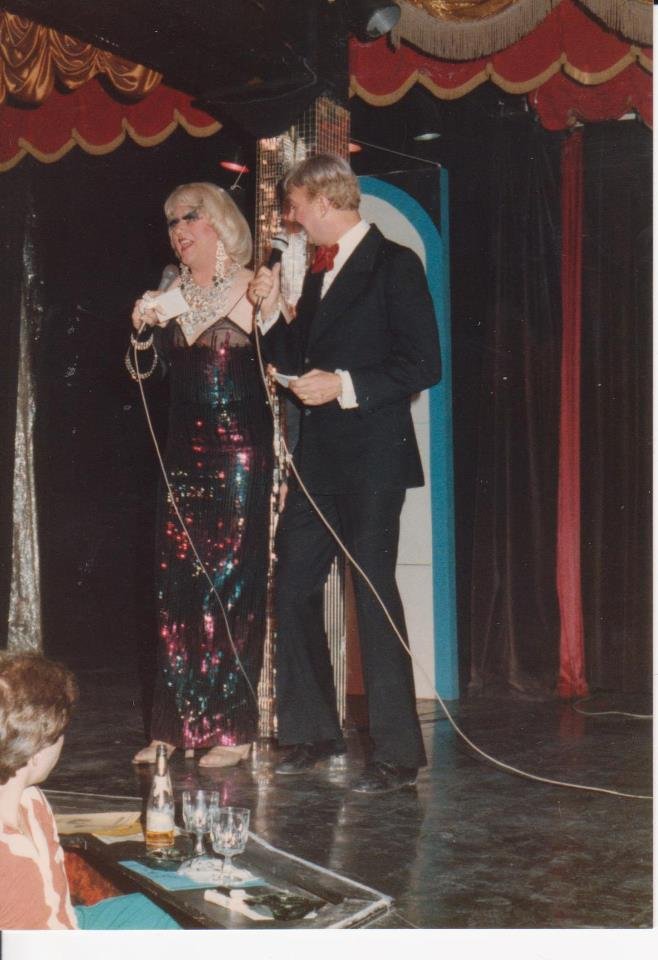DAVID HAMILTON - MAME
David James Hamilton “Mame” was born on Jan. 2, 1935 in Oregon City, Oregon a British immigrant family who lived on a farm in Clackamas County. His father died young, but his mother continued the farm life for a while. David attended grade school at the old Viola School on South Redland Road in Clackamas County and graduated high school in 1953 from Estacade High at the age of 18 before heading to Portland State College. He then served in the Army leaving as Sgt. First Class. Returning to Portland, he moved back in with his mother who at the time was living in Gladstone.
When Lloyd Center's open-air mall opened on August 1, 1960, David was hired by Stevens and Son’s Jewelers to be their first buyer. As the Oregonian reported in his obituary, “It was part of his job to wear the Yves St. Laurent suits and head out on giftware-buying trips to New Your City. By day he’d be placing orders with Tiffany, Lalique, and Waterford; by night he’d be front row center for evenings of musical theatre.” Oregonian June 24, 2007
The question as to when David started doing drag is one that many haven’t asked. As there weren’t many bars in Portland as far as anyone can tell that had drag performers. It is stated that In his off-hours, he performed in drag at various bars around Portland such as The Side Door and Dahl & Penne along with Van Richards, ‘Vanessa’. However, the Side Door didn’t exist until April 1972 with the ‘announcement’ of the opening placed in April 1972 in The Fountain newspaper, April 1972 edition, page 3 and page 5. Dahl & Penne was an established bar but didn’t become a gay hangout until 1972, when a straight married couple from California, Sammy and Gene Landauer purchased it. With knowing that, where did David and Van perform? The time frame from 1960 – 1964 is a bit hazy. Here are some possible bars that operated at that time that might have had drag performances – only two are stated per Damron Address Book/Address Guides to have ‘drags’ – Buddies Post Tavern and The Model Inn. It stated in the December 1974 article in the Northwest Gay Review page 18, “(I was) originally known as Kimberly or Kim, but one day a young man moved to Portland was also known as Kim (who was Kim Chidester), “This city isn’t big enough for two Kim’. I chose the name Mame because it represented a personality, a lifestyle that could become a vehicle for me to truly be – to do and achieve what I wanted in and out of life, it was me.”
Also during a hearing for the closure of homosexual and lesbian clientele bars, there was a debate on just how many bars there were. “The Oregon Journal claimed that Portland's gay bars were "encouraging their [queers'] …Councilor Grayson argued that there were nine gay bars in Portland, Lieutenant Crawford claimed eight, while Derek Akerson, owner of Derek's Tavern, countered that there were only two "strict" gay bars and two "strictly girl taverns." The actual number of gay bars was debatable, depending on whether mixed-customer bars were counted.
However, the contention that the number and presence of gay bars and queers in Portland had grown dramatically was shared by police, city councilors, newspapers, and citizens. "Either they're growing in number of I'm just seeing a lot more of them," reported a Portland police officer. It is possible that, prompted by Portland's recession and diminished revenue after the city's crackdown on gambling, bar operators increasingly welcomed queer customers as they struggled to find new sources of revenue.” Per Gay Bars, Vice, and Reform in Portland, 1948-1965 Beka Smith Portland State University February 2002.
Meeting with Walter W Cole/Darcelle on August 5, 2022, he answered the question. “Where were female impersonators performing in the early 60s?” His answer was, “They didn’t perform. First of all, they were not considered female impersonators and this is where confusion comes in. Most back then didn’t have access to a lot of clothing, wigs, shoes etc. so they weren’t very attractive. So, many people called those who did dress up in opposite-sex clothing ‘crossdressers’ more than female impersonators or they were called ‘drags’. They would go into the bars that allowed gays and just be part of the ‘atmosphere’.”
The bars in Portland at the time were:
Buddies Post Tavern 926 SW 4th Years: (gay from at least 1962 to 1968) Listed in Damron Address Book/Address Guide 1965 under Bars/Clubs with notations of M – mixed and RT – Raunchy Types [Hustlers, Drags, and other ‘Downtown Types’ [this is the way it was listed from 1965-1969]
Club Northwest, 217 N.W. Fourth 227-8860 Years: 1968-1972 as Club Northwest,
The Fiddler’s 3 “old” Somebody’s Place, 728 S.W. Ninth.
Years: 1966 – 1969 [the 1969 date is when it is stated Roman purchased the bar and renamed it Roman’s]
Grand Oasis Tavern (also The Last Resort), 243 S.W. Alder. Years: 1940 – September 1982
The Harbor Club 736 S.W. First Years: 1946-1964
[The] Model Inn, 1536 S.W. First. Years: 1964-1967 Listed in Damron Address Book/Address Guide 1965 under Bars/Clubs with a notation: RT – Raunchy Types – Hustlers, Drags, and other ‘Downtown’ Types this is the way it was listed from 1964-1967]
Old Glory Tavern, 118 S.W. Madison, 1962-1964. Some called it The Glory Hole
Park Haviland SW Broadway and SW Salmon Years: gay friendly from 1965 – 1975? possibly earlier in 1962- 1980
[The] Transfusion Inn, 1139 S.W. First, Years: 1959 – 1964
However, the one most likely was The Tavern. Per the article in the newspaper Northwest Gay Review, June 1977 written by W Holman “A Gay History – lest it be forgotten” sheds many stories on drag in bars.
It appears that on page 3 he cites that “The Tavern. Fame and its hospitable reputation quickly spread. Earwigs and cockroaches alone filled it to capacity. [further into the article] “to gain status and become the nucleus of present-day organized annual pageantry: The Royal Court. [further into the article] Within the hallowed halls of The Tavern, Portland’s Gay Territorial Imperative – a Fantasy Kingdom – was created, to become the oldest court system on the entire west coast. [further into the article page 4] The Tavern and Harbor (Inn), as well as the Tel & Tel was home for the group, a protectorate. Stragglers and the unemployed or unencumbered gathered in the afternoon. By the time downtown businesses and offices closed, the Day Nurseries were busy. [further into the article] In Spring 1961, The Tavern moved to its present location. [further into the article] Six months after The Tavern had relocated and a year before the overly - zealous Columbus Day breeze pruned some prized trees and reshaped a few buildings) an Annual Charity Blowout was programmed. The charitable element involved diligent patronage of such exclusive milliners and couturiere as [Goodwill and Vinnie d’Paul]. Each year, racks of elegant finery were collected for the annual blast, which by careful calculation became somewhat legal: the festive fracas was Hallowe’en. Under protective costume guise, butch and bitch emerged, not necessarily in true likeness or in that order. Finery encased and released; drag lost its butch connotation in costume and costume provide the excuse for drag. Pure as driven slush, automated manikins donned their gay apparel, two months prematurely. The waterfront crow, each season began with Hallowe’en, to continue through the dawning of another year.
About the same time (and for the ensuing four to five years), the city began to “closer investigate” the morals of one particular group of voters. Slowly, but too surely, authority began to agitate that ripening infestation Portland had tried to ignore. Lucy, with tambourine – her only weapon full of butts, ingloriously dumped the lot on the feet of an OLCC inspector who was parked at the bar. There was a closure. The Harbor’s topside was closed by downright meaningless edit: too much weight confined into one area, even though most of it was gas or gassed. Saunders’ Tel & Tell, still within spitting range of the Police Station, was closed periodically for frivols and various infractions. Eventually, the city refused license to dispense a bag of popcorn or a glass of soda water; the OLCC refused to enter the battle and issued liquor dispensering licenses. A customer had no choice but to drink only intoxicating fluids, nor could he quelch a hunger pang – in a business not legally doing business.
[further into the article page 5] Because the City of Portland still refused to dispense license to serve food or beverages other than those containing alcohol, the Harbor met its demise. Law is law; the OLCC had not choice. The percentages of food sold against those of beverages purchased had to be maintained by law. As the only cocktail bar involved in the city’s harassing game of shell-and-pea, the Harbor was doomed because it could not function as a restaurant. The city got one of its prey-temporarily. The Harbor acquiesced but it was not amused; it opened its doors again in the northwest area. The Riptide accepted most of its previous customers but was definitely not interested in obvious clientele, in or out of drag.
There is this mention but it doesn’t say what bars…hmmm. 1968 – July 7 The Sunday Oregonian – Daytime it is tree green and concrete gray, a city of beauty and charm…BUT AT NIGHT “the first shows were starting on the small stages of the downtown bars. One of the bigger more expensive productions featured two female impersonators and two honest to goodness females.” Where this was? I don’t know.
Since coming back from the army in 1960 we do know that David traveled a lot for his job at Stevens & Sons because he was a buyer. He always expressed the fact that he loved San Francisco. In fact, when he was offered a job, he declined it saying, “I really wanted to keep San Francisco as my Oz.” That didn’t stop him from making multiple trips.
What is known that In 1964 he attended a semi-newly formed group calling themselves the Imperial Court de San Francisco under the rule of Empress of San Francisco José Sarria and an even called a Court Ball. * Per http://www.imperialcouncilsf.org/founder.html “In 1964 at Beau Arts Ball at the Hilton Hotel on O’Farrell Street that was hosted by the Tavern Guild of San Francisco, José was crowned Queen of the Ball.” Per same website “In 1965 Sarria founded The Imperial Court of San Francisco.” His reign as Absolute Empress I de San Francisco José was from October 31, 1965 - November 1, 1966 ]
Stated in sAD MAGAZINE [SAD Mag is an independent Vancouver, BC publication featuring stories, art, and design. Founded in 2009, we publish the best of contemporary and emerging artists with a focus on inclusivity of voices and views, exceptional design, and film photography.] an interview dated November 14, 2014, with Ted Northe who established in 1964 the Dogwood Monarchist Society [the longest running LGBTQ society in Canada] and the Imperial Empire of Canada that David Hamilton/Mame dressed him up in drag and they went out on the town in San Francisco. When he got back to Vancouver, BC, he established the court system there.
Per the article, “Histories of the gay rights movement in North America typically begin with the Stonewall riots in New York City in 1969. However, Vancouver, Portland,and San Francisco, established strong gay communities years before the riots began, and were met with relative acceptance. In contract to the homophobia and police violence on the East Coast, on the West Coast community opened gay bars, hosted gay parties, and started fighting for equal rights much earlier with comparative ease. It should be noted, that back in 1912 when the Vice Clique Sex Scandal erupted in Portland, police from cities on the West Coast were talking to themselves and again at other times. In the early part of 1960s when Terry Shrunk was mayor, he wanted to rule out sexual deviants very much as Mayor Dorothy Lee McCullough had tried in the early 1950s. A newspaper columnist Doug Baker, the Oregon Journal’s city gossip columnist, in one of his June 1964 columns wrote, “The Unmentionable People are virtually untouchable people, and they are growing stronger each week.” He went on to say, ““A veteran police officer said last week, ’Either they’re growing in number or I’m just seeing a lot more of them.’” The unnamed sources kept coming: a Portland State student propositioned by another woman; a “businessman” vowing “vigilante” action. Baker noted the cops traditionally took a “hands-off policy with respect to the Unmentionables.” “[T]hese biological rejects cling tenaciously to the myth that they are, in some strange way, something special,” the newsman typed. “It’s time the mayor’s office had a new look at this old problem.”
Per By Zach Dundas 5/22/2018 at 12:41pm Published in the June 2018 issue of Portland Monthly in his article Pride: The Prequel “More newspaper articles, Oregon police made a series of arrests for various sex and pornography offenses in 1963, which triggered a classic media panic, with Oregonian headlines like “They Prey on Boys.” Portland’s mayor, Terry Schrunk, decided the time had come for action.” “By ’64, Schrunk had launched a Committee for Decent Literature and Films (!), and heated rhetoric swirled in city council meetings.”” Schrunk and the council decided this would not stand (though one commissioner astutely noted that “these people are not going to disappear”). After a series of hearings in November and December, the city moved to shut down six bars, pressuring the OLCC to revoke their licenses.” “The denouement, then, was classically Portlandian: no billy clubs, no bold riots in the streets, just two rival bureaucracies and a well-framed legal argument. The unlikely agent of progress: the OLCC, which essentially dismissed the City of Portland’s attempt to crack down on “the Unmentionables” out of hand.” “Schrunk sputtered. He wrote the governor, who ignored him. The only casualty, in the end, was the Harbor Club. When the city pulled its food license, the waterfront redoubt shuttered.”
Per a 2004 Oregon Historical Quarterly essay by historian Peter Boag stated, “In one odd (arguable) byproduct of the 1964 episode, the Portland bars’ survival may have muted activism. “In other cities, it was constant harassment*,” Boag says. “In Portland, after 1964, the bars were left alone, and as a result Portland gays tended to be more lethargic politically.” We never had a Stonewall.
*Bars in Portland were, for the most part were owned by people who ‘didn’t care about sexuality’ or as it soon would be, owned by gay people unlike the east coast where bars were owned and operated by the mafia.
He loved the idea so much that he brought this idea back to Portland. Per the 1977 by W Holman for the Northwest Gay Review in A Gay History, lest it be forgotten. Cited on page 5 of the Special Issue he discussed the concept with his friends [Miss Ira, Dolly (Auntie Mame), Kissy Dickie, Jeanette MacDonald (Looking for a Mountie), Allan Smith, Erland, Bob Whitney, and again Razor Baron Bill, as producers. they formed a group called the Pruitts of Portland. It is said that this a group of friends of the ‘gay persuasion’, took the name of Pruitt as a sign of solidarity. They were a theatrically oriented group who some say got their names from a short-lived ABC television show in 1966 starring comedian Phyllis Diller entitled The Pruitts of South Hampton that was being advertised in 1965. They began as a semi-comic relief against Portland City Hall’s attempts to close eight gay bars. This was a social group that put-on charity fundraiser shows. Some have said this was a ‘theatrical performing group’- there is no record that anyone in the group ever performed in a local theatre production, so possibly the ‘theatrical performing group’ was them being wild and crazy at the bars?
It is believed that they were all gay and using the name Pruitt was a sign of solidarity and the word Pruitt in the dictionary means valiant one or brave little one. Some say that they may have also gotten their name from a popular 1966 ABC television show called The Pruitt’s of Southampton starring comedian Phyllis Diller however that show didn’t appear again until 1966 – two years after the group was formed. David and Van (Vanessa) are the cornerstones of organizing the gay community here in Oregon.
During this time in Portland, Mayor Terry Schrunk along with the city commissioners and the Oregon Liquor Control Commission taking a hard look at bars and taverns in the Portland metropolitan area, especially eight known to have ‘homosexual and lesbian clientele’. Those eight bars were The Half Moon/The Tavern, Harbor Club, Old Glory Restaurant, Derek's Tavern, the Transfusion Inn, Milwaukie Tavern, Model Inn, and Mama Bernice’s. This hasn’t been verified but it is said that the group formed because they were to be the semi-comic relief against Portland City Hall’s attempts to close the eight bars. It is unclear what comic relief they would provide or where, but as many will attest, David was always one with a smile on his face and loved to party.
****By 1966 they started having themed ‘drag’ balls. This appears to be the first time that local performances were held that brought female impersonators/’drags’/cross-dressers – in fact the whole community together. The first if you will, organized gay community event. The balls were designed as a beauty contest for the female impersonators twice per year – one in the spring and one in the fall. At first a new queen would be crowned but called Queen. They would give up their ‘crown’ six months later at another ball. The way to become Queen was to dress-up, walk to a chair, sitting, then standing. The prettiest one that did this or the one whoever stayed in the chair the longest won the tiara and crowned "Queen for A Day" (that’s partially where the "Rose Queen" title emerged from). You didn’t have to talk or perform – nothing.
The Pruitts of Portland slowly dissolved into the Portland Forum. David stated in an interview in the December 1974 Northwest Gay Review, “At that time (I) knew and loved a very beautiful and real person named Gary Michael and we became the closest and best friends. Out of that relationship the Portland Forum
Portland Forum was established in 1969 which became the first gay organization registered with the State of Oregon that happened on January 16, 1970. Both were the precursor to what is now known as The Imperial Sovereign Rose Court which in 1971 became the first court outside of San Francisco. In 1973 he was officially given the title of Minister of Madness and Mayhem by his friend and reigning Empress Darcelle XV, Walter Cole. His drag name was Mame or Auntie Mame to some.
After the opening of the Dahl and Penne bar they remodeled the old card room calling it the ‘Royal Flush Corral’ where David hosted a ‘Sunday Night At The Movies’ party. [Royal Flush opened in 1973, November 16-18th, Walter W Cole/Darcelle Empress XV was hosting her step down and the crowning of Empress XVI who would be Doni Lame’. A sheet was developed entitled WELCOME TO “CITY OF ROSES” with various details. Three mentions for Dahl & Penne “Friday, November 16th “The Royal Flush Room”, the notorious Back Room, at D & P has reopened as a beautiful show bar, Hosted by the equally notorious Vanessa and Cast. Tonight’s spectacular starts at 10:30 pm.” Then “Saturday, November 17th, “ Portland’s landmark bar with the new “Royal Flush Room” presents it show tonight at 11:30 pm hosted and emceed by Vanessa. As stated where Vanessa began performing Saturday night drag shows under “Vanessa & Co.”.
He loved Mardi Gras and almost made it an annual event. On one trip David, Walter Cole [Darcelle XV] his partner Roxy, Bobbi Callicoate, Terry Kaye were there – Darcelle in cowboy attire and ‘open butt’ chaps, Roxy in his nurse's outfit, David in And, well, Roxy dressed up in his crazy nurse outfit – Mame dressed in leather with a fake breastplate and Terry as a showgirl - per postcard photo below.
It almost all came to an end when in the mid-'70s, David suffered a horrendous car accident that nearly took his life, he was incapacitated for months at which time he was in the hospital. During this time he underwent massive facial reconstruction.
Countless charities benefited from Hamilton’s years of charity work. His devotion to raising money for various causes brought forth a party called Christmas in July. He co-hosted the San Francisco Portland Party for 24 years and also hosted the Valentines from Hell party. He was tirelessly working with The Pride of the Rose and Audria M. Edwards Scholarship Funds, Esther’s Pantry, Friend of People with AIDS Foundation, The Brinker Fun, The Oregon Bears, and Camp Starlight.
Then the 80s and the AIDS crises. It came right at his doorstep becoming one of the few that carried the HIV virus but never developed full-blown AIDS. His partner at the time wasn’t as lucky. David went through bankruptcy, losing his home to pay for his longtime boyfriend’s medical costs.
That’s when he moved into the home of Darcelle and Roxy where he lived until his death. He liked to joke that he was Darcelle’s yardman.
[In 1986 Stevens & Sons filed for bankruptcy protection as per Larry Stevens who was president of the company said that all three stores, Llyod Center, Jantzen Beach, and Salem would still be in operation even though US Bank seized the company’s inventory. By 1987 the company completed its payments and got out of Chapter 11 bankruptcy to only close in 1989.] David who had been with them for 29 years at that time. It is stated that David then found employment at Lake Oswego Jewelers. During an interview with Keith Allred on August 5, 2022, who was Erv Lind’s partner for several years states that actually, when Stevens and Sons closed, David became a floral designer at Erv Lind Flowers for a couple of years before working at Lake Oswego Jewelers.
In his memorial statement it said that he then became a customer service representative for Abbott & Rinehart Jewelers in downtown Portland. Many would say, that during the week he’d walk from 89 NE Thompson to a restaurant near Lloyd Center some 25 blocks away for breakfast at around 6 am, then off to work at the store. After work, he’d go to Peacock Cleaners to pick up his dry cleaning and off back home. On weekends it would be attending brunch at Fox and Hounds or the Cadillac Café and then take a ‘disco nap’ – but then head down to Darcelle’s Showplace at 9 pm.
In 2003 in the Imperial Sovereign Rose Court Newsletter “Coming Up Roses” David was asked Why did you join the court? “The Court was formed after I was given one of the original honorary titles in the Court system. Having been born in 1935 in Estacada, Oregon, I was well aware that prior to the formation of the court system Portland had absolutely nothing to offer the unmet needs of a large portion of the population. I was intrigued by the idea of a Gay community organization designed not only for fun and glamour where people could be open and why and what they were – but also one serving the various charities, such as people with AIDS.”
The Oregonian ran a large front-page obituary on David, The Sunday Oregonian, June 24, 2007 “Life of the Portland pride party - David Hamilton helped organize the city’s gay community.”





